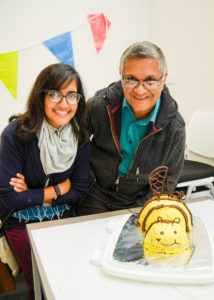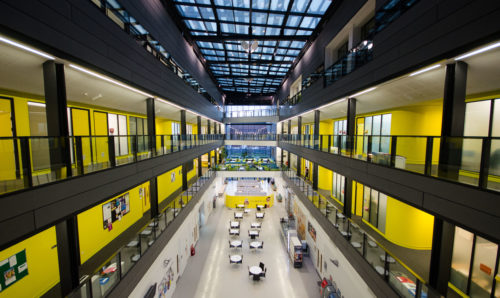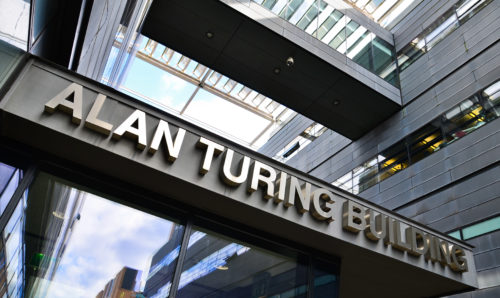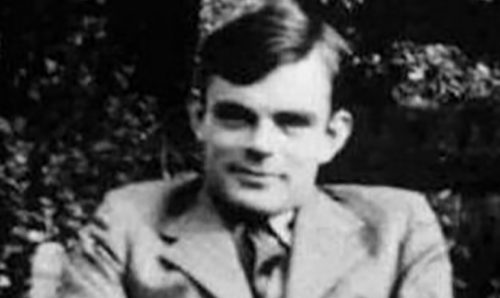Meet our academics – Jitesh Gajjar
Meet the Department 20th September 2019
In this series of blogs, we chat to the academics you’ll meet, be taught by and work with during your time in the School of Mathematics. In this post, we catch up with Professor of Applied Mathematics Jitesh Gajjar and ask about his research in Applied Mathematics.
Who or what first inspired your interest in Mathematics?
I am not sure whether there is anyone or anything which led me to become a mathematician. I was the first to go to university in my family. If I think about where did the maths gene come from, I would say possibly my mother. She never really had a chance to complete even high school because of marriage, but even now at the age of 81 she is still good with numbers and mental calculations.
I clearly remember in the equivalent of Year 8 (second year) in secondary school in Bolton, the teacher Mrs Boardman asking me what I wanted to become, and I said without hesitation I wanted to be a mathematician. I never liked writing essays and the marking of essays was always subjective (with me getting invariably low marks on what I thought was excellent work), whereas in doing maths questions there was no such ambiguity. As I progressed to A Levels, the chance of specialising in mathematics and more mathematics, (I chose Maths, Further Mathematics and Physics) was great and I never looked back. I used to spend many hours in Leicester Central Reference Library and there was one book that I really enjoyed studying which discussed how to solve cubic equations and other topics that was really fun. So I ended up studying Mathematics.
How did you begin your academic career in fluid mechanics?
I was always interested and enjoyed applied mathematics topics. I found the abstract ideas in some pure maths courses just too hard to absorb, although I really loved real and complex analysis. So I started specialising in applied courses. When I was thinking about PhDs I was fascinated by modelling of flow through arteries and blood flow. I remember going to the Physiological Flow Studies Unit at Imperial College to enquire about possibilities in this area, and they just weren’t interested. They were more interested in whether I was good with my hands and making lego/meccano models. We weren’t privileged growing up with any of these fancy toys, so that was the end of that opportunity. I ended up doing my PhD with Prof. Frank Smith FRS, who was also my personal tutor at Imperial. He was a very young researcher at that time and highly recommended to me by other staff at Imperial. His research was in high Reynolds number flows an area relevant to what I was interested in. After completing my PhD, I decided to leave academia as the thought of doing post-doc after post-doc just didn’t appeal to me, and so I joined B.M.T. Ltd as a Research Scientist. In 1985, Philip Hall (also one of my teachers at Imperial) got a Chair at Exeter University and I remember him contacting me and encouraging me to apply for a lecturing post at Exeter. That is how my academic career started. The one other person I should also mention and I am so grateful to is Professor Trevor Stuart FRS also from Imperial. He is the one person who has always supported and encouraged me in my career and in my choice of research topic.
What’s been your favourite aspect of the job so far?
The most memorable research related activity was going to Liverpool Hospital and being in a theatre watching a heart surgeon doing a by-pass operation. This came about after I was approached by a doctor from the same hospital who was interested in mathematical modelling of coronary grafts. She suggested that if we wanted we could come and see a live operation, and of course we jumped at the opportunity. It was absolutely fascinating seeing a real operation. The size of the arteries and how small the tubes are is just mind blowing. It is ironic that in year 9 (third year of secondary school) I dropped biology because I didn’t want to do any dissecting of organs or other animal parts. But I have always been fascinated by the human body and how it works and the opportunity to see a heart operation at very close quarters literally standing a few feet away was just breathtaking.
What do you most enjoy about working here at The University of Manchester?
The most enjoyable part of the job that I do is meeting and getting to know wonderful people from all diverse backgrounds. It is a real pleasure to be able to help someone and I see it as my duty to try and help young people to do the right things and give them the start in the careers with what little influence I may have. I still remember all the help that people like Trevor Stuart, Frank Smith, Mike Gaster, Philip Hall, Anatoly Ruban and the late Peter Carpenter, all my real heroes, have given me over the years, and it would be nice to be able to do the same to shape someone’s life. The University of Manchester has many great qualities, and for me Goal 3 of excellence in social responsibility is so important. It allows staff to do the selfless work and give time to making a difference to the society that we live in. I have strong faith and try and live by the values of the Bhagawad Gita, where Lord Krisna talks about doing selfless work and not worrying about the fruits of your actions. To me Goal 3 is the closest thing to combining work and my faith.
What do you get up to in your spare time?
I have many interests and hobbies. Nowadays I enjoy gardening. I love cooking and baking and have been lucky enough to win three baking competitions at the University. Every year I try and train to run in the Manchester 10K or longer. This year I am running in the half marathon on 19th May 2019, and training for that takes up a lot of time. Being a mathematician means that problem solving is always there and one of my passions is being a fixer, ie trying to mend things. I have many wonderful stories I can share. Colleagues may remember me trying to fix my lawnmower by replacing the spark plug with one from a Ford Escort that I owned. Of course it was the wrong size and it broke the lawnmower as one of the valves got bent. My most recent problem solving success was fixing the new-ish Panasonic TV. It was out of warranty and half the display wasn’t working properly. After a bit of research and trying to source the correct part, I managed to sort the problem and I got a real buzz, just like when solving a maths problem.

We’ll have a new academic interview for you on the blog soon.




